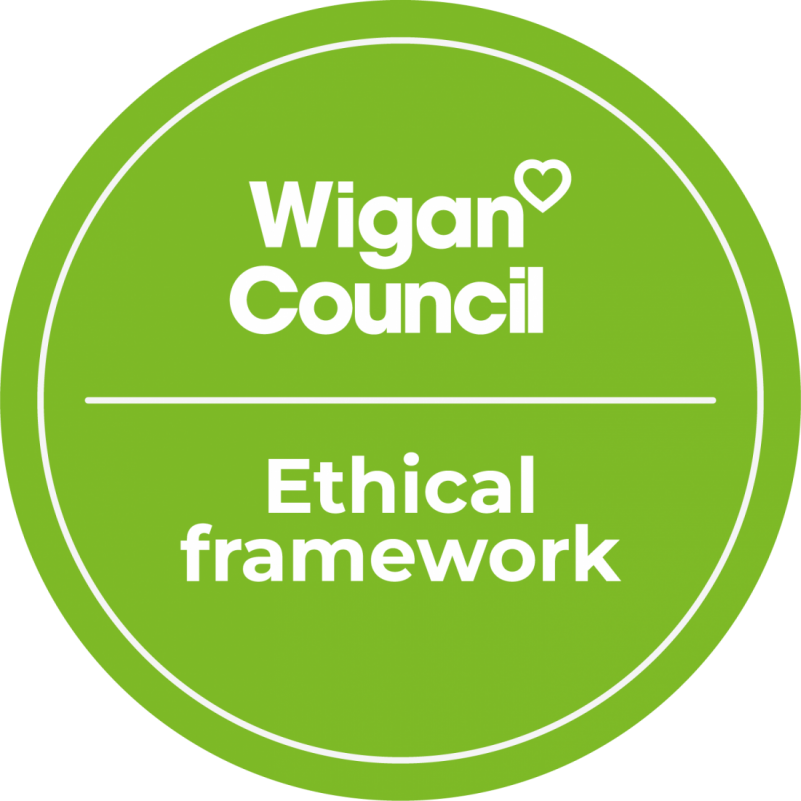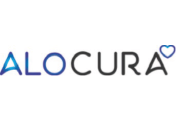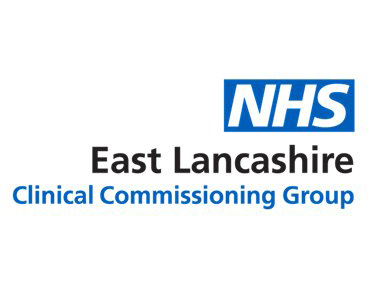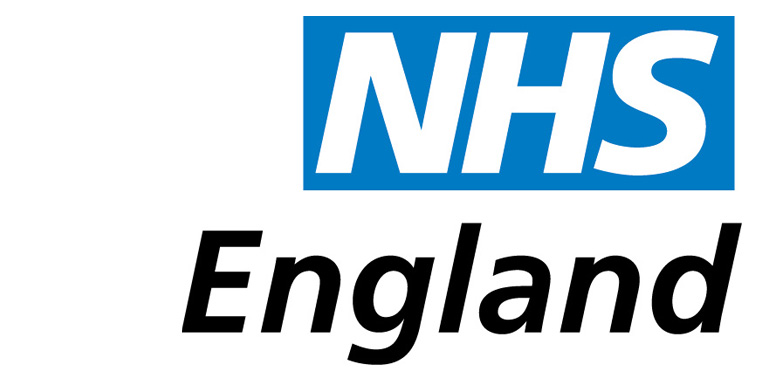MyLife News
Course: Getting Back In The Saddle – Helping Women Feel Empowered After Lockdown, Through Equine Guided Learning
Posted on Thursday, March 25th, 2021
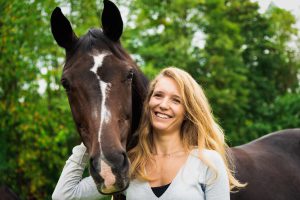
Five-week course, Saturdays from 24th April, 10.30am until 3.30pm
The last year has been very difficult, but for those who have had to juggle family life, children, a career, home schooling, caring responsibilities, relationships, feeling isolated, lonely or simply ‘just having to do everything,’ life has been really tough. The mental health of women has suffered terribly during the pandemic and we want to help you to ‘get back in the saddle.’
As little girls many of us loved the thought of being with horses. Some of us achieved the dream, others just imagined galloping free. As adults we simply haven’t had time, we can’t afford it, we are too fat, not fit enough or are frightened by something that happened in the distant past. We give ourselves so many excuses of why we shouldn’t, but now is the opportunity to re-live your dream and do something for you.
We have crafted a five-week course combining person centred coaching and the use of our horses and other animals as partners in the delivery.
The benefits to you
We will help you to realise your own dreams and goals, discover how to make them become a reality, build your confidence, self-esteem, feel in control and experience real joy, being with horses and our other animals. This is a chance to slow down as we offer guided instruction, response and reflective practice, enabling you to communicate in a way in which the horse understands, through body language and movement.
You will have the chance to learn from our horses by developing a true relationship that is hugely rewarding and empowering. You’ll understand how they respond to each other and to humans, through guided observation. You will spend time touching, stroking and grooming them, learning how they move and generally building your confidence with them. For some, climbing aboard will be your ultimate aim, for others just being with the horses will be enough. You will be encouraged to develop at your own pace and reach your personal goals.
“Horses are magical beautiful beings that don’t judge, they seek love, an open heart, a humble soul and are a joy to be with. To express ourselves in the same way as horses understand, is to let the power of our emotions flow, to be present, engaged and feel connected.”
Who is the course for?
The course is for any woman of any age, from those who only imagined being with horses to those more experienced, albeit a bit rusty. This is as much about empowering you, as it is being with the horses. It is now time to do something for you, to rebuild your confidence, energy levels, self-esteem and to spend some time doing something that you will enjoy.
About the course coach
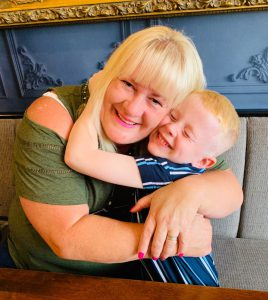
Caroline Tomlinson is the founder and CEO of the charity My Life Legacy. She is a qualified riding instructor, life coach, trainer and mentor. Her ‘horsey career’ came to a halt when her son contracted meningitis at six months old and was left with complex disabilities. Caroline had to discover a new dream and a new pathway to live a good life, albeit different to what she had planned. She works with people to empower, coach and encourage every individual to live a good life and is now combining all of her learning with the wonderful facilities at Thompson House Equestrian Centre, to help those struggling right now.
The course costs £55 per session or £250 for the full course of five weeks
Participants should attend all sessions to maximise the full benefit and feel-good factor.
This includes refreshments and lunch from The Stable Door Café & Ice Cream Parlour.
Income generated from this course will support the wonderful work of our charity, enabling our members to benefit from the joys of our horses and other animals.
Venue
My Life, Thompson House Equestrian Centre, Pepper Lane, Standish, Wigan, WN6 0PP.
To Book
Call 01257 472900 or email info@my-life.org.uk.
This course is not restricted to women and can be tailored to the needs of other individuals and groups, including work-place team building, much needed after separation caused by the pandemic.
My Life Blog – Caroline Tomlinson: ‘Why it takes a whole community to be part of the Health and Social Care workforce’
Posted on Tuesday, March 9th, 2021
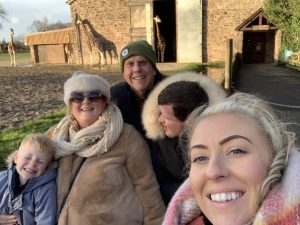 I think the events of the past year have made everyone at some point stop and consider not only what they want out of life but what positive effects they can have on someone else’s too. Whether that be changing career to one that makes a difference, or helping a shielding neighbour with their shopping, we’ve all in some way had cause to find meaning in what we do every day.
I think the events of the past year have made everyone at some point stop and consider not only what they want out of life but what positive effects they can have on someone else’s too. Whether that be changing career to one that makes a difference, or helping a shielding neighbour with their shopping, we’ve all in some way had cause to find meaning in what we do every day.
Which is where working in the care sector comes in. Traditionally, of course, it’s bound up with looking after people who need care. It’s hard – if hugely rewarding – work. But what I’ve been saying a lot recently to people who are considering more meaningful work is that the job isn’t always about the practical act of caring. It’s about helping people to live a good life in all sorts of ways, and that means attracting people with all kinds of skills and gifts that can enhance the quality of other people’s lives.
And across My Life, nearly 80 percent of the people doing incredible work with and for the people we serve have never worked in the sector before. We’re finding a whole new group of people who want to work across health, education and care. And who stay with us far longer than the industry average.
How we do it isn’t a trade secret – I’ve not quite written the book about recruitment in the care sector (yet!) but at My Life we did pioneer the approach and I do run the course. It’s called Pathways To Employment – and while we started it in Wigan, we’ve coached people in communities across the country to deliver it too.
The idea is to have a dialogue with people about the values of an organisation and what it stands for, before they decide to apply for a job. Our strapline for Pathways to Employment is ‘finding people with big hearts,’ and it began in 2012 when I realised that there were people employing their own staff – through a direct payment or personal health budget – but struggling to find really good people to provide their care. All they could do was put a job advert on Indeed and hope for the best. Sometimes it worked, sometimes it didn’t.
And the single biggest issue in our sector is recruiting really good people, not least because pay has been so low in the past that they just jump to another job offering slightly more money. So my view was that we needed to reshape the whole system, and bring in lots of people with lots of skills and gifts. As long as they’ve got the right attitude to do the job, you can train them in the specifics of the role.
But first of all, I felt it was really critical to give people insight into the variety of jobs available. A lot of people who come on the course wouldn’t directly apply for a role on Indeed because they wouldn’t consider themselves qualified enough. What we do with Pathways to Employment is work with people before that point of recruitment to discuss whether there is something that’s right for them.
It’s attracted such a vast array of people from masses of different backgrounds. We get people from hospitality who make brilliant personal assistants as they’ve been schooled in customer care. We’ve appointed teachers, nurses and social workers to work across My Life utilising their skills and delivering personalised support across health, education and social care; Amy, for example, used to work for a bank dealing with bereaved families – though she was talking with people who needed emotional as well as practical support, she felt “unable to speak to people like a real human.”
She heard about Pathways to Employment, completed the course and was “hooked”. She started out volunteering at our café and it wasn’t long before it was obvious how much she was enjoying it – and now she works full time in support for My Life. I spoke to her the other day and she still has the great energy which has been her best asset. “I thoroughly love my job,” she said. Does it get any better than that?
Our safeguarding lead, too, is a former police inspector who wasn’t ready to retire and had masses of life experience and transferable skills. He came through Pathways To Employment and has been a big asset to My Life.
What his experience proved is that the pathways into employment at My Life aren’t always directed towards being a frontline carer – organisations like ourselves need a whole range of skill sets to fit a wide range of roles. And actually, although the Pathways to Employment course is crucial, the process of finding the right colleagues starts a long way before that. We can’t expect people just to turn up out of the blue – we have to get out in the community, market ourselves on social media and capture the imaginations of people who have always thought about a career change or giving something back but didn’t know where to start.
I think of Nicky, who works within our My Life Learning team at Standish. She’d worked in mainstream education for years but had got frustrated with the lack of opportunity to work on individual needs. She heard about Pathways To Employment and within hours of attending the first session instantly knew she wanted to be part of the journey. “In a way I felt like I already belonged,” she remembers. I just want to share with you here what she told me recently:
“Although at the time I didn’t understand why My Life employed staff in this way, by the end of the course I totally did. The discussions which took place emphasised My Life’s ethos and the values that make it the place that it is; being the right person mattered most, not the qualifications you had. The way in which children, young people and adults alike were being supported by a hand up, not a handout, really appealed to me. Despite not working with young adults before, I desperately wanted to become part of the team and to make a difference within a community where everyone belongs.”
That’s why the course is free, usually at the weekends and is designed to give people some empowerment and self-confidence. So even if people don’t decide to take the relationship with us further – quite a low number in reality – they have still participated in something worthwhile which has opened their minds to different things.
It was reassuring to me that Nicky talked about community. One of the biggest drivers for me is that we employ people who both believe in their community and are connected to it, because invariably that means they open up new worlds for the often isolated and lonely people they care for. I truly believe that a big part of the caring role is to help people gain wider networks and connections.
And some of those connections come at the course itself. I bring in people looking for personal assistants, and the participants get to chat to them informally. It’s fascinating to watch the people on the course working out whether that kind of job – working for a family who need care – is for them, or whether in fact that specific family would work for them. And then – a bit like The X Factor! – sometimes we might actually match people that have met at the course who then go on to have really successful working relationships.
So Pathways To Employment is unique – and yet has become transferrable across the country. It’s not a course on how to deliver care. It’s a course that explores how to deliver really good quality support for people, and where you might fit within that. It might be that your “fit” is a day a week in combination with other work, which is also fine. What the course really tells you is that there are so many opportunities for meaningful work out there.
Caroline Tomlinson, My Life Founder and Chief Executive Officer
Our next Pathways to Employment course will take place in Wigan in June 2021. Please contact us on 01257 472 900, or email info@my-life.org.uk for more details.
Subscribe to My Life’s Blog
Like what you’ve read? Subscribe here and receive our blog direct to your inbox!
Tell us what you think
Please leave a comment below.
Information about the Coronavirus vaccine, for people who find pictures easier than words
Posted on Wednesday, February 24th, 2021
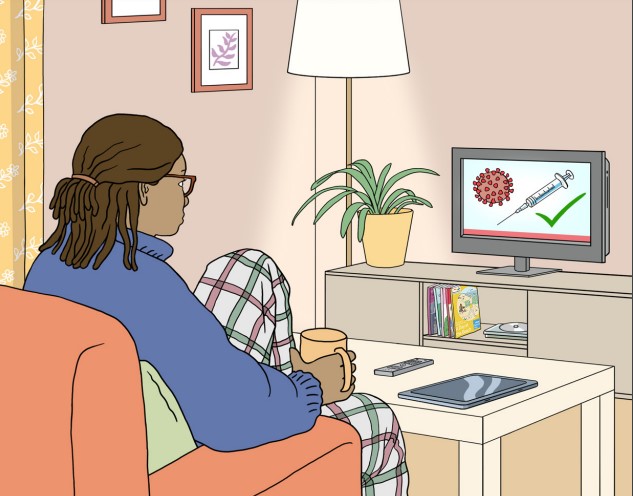
If your loved one is waiting for their vaccine invitation, they or you might feel a bit apprehensive about it.
Beyond Words have put together this easy to use visual guide to having the vaccine.
It’s a story for people who find pictures easier to understand than words. In fact, it’s not necessary to be able to read any words at all. It also comes with a guide explaining how best to use it to talk through any feelings or concerns.
It might help to look at it together, so that you or your loved one can feel prepared when they receive their vaccine invitation.
You can read it here.
Fun, themed chalet weekends this summer, exclusive to My Life members!
Posted on Wednesday, February 17th, 2021

We’re very excited to announce that this summer, we’re holding exciting themed weekend holiday stays in our chalets, with full support!
Exclusive to My Life members, you can enjoy a break in a familiar place, with just a few others. Even better, all bookings will be honoured if the weekends have to be postponed due to Covid-19.
With three different themes, which will you choose?
Farming Fest
Live a farmer’s life – from seeding to planting, crop rotation and caring for our farm animals, perfect for those who don’t mind getting their hands in the soil!
Master Chef
Learn to cook your favourite dishes! Become Master of the kitchen! Experience alfresco dining and BBQ’s as the sun goes down.
Mini Fest
Enjoy drama, dressing up, music and making festival props. Create a wonderful space to enjoy each other’s company and a camp fire sing song!
How much does it cost?
- £225 for the weekend (including full board and *support)
- £135 for two days non-residential (Saturday and Sunday)
Book today on 01257 472 900 or email info@my-life.org.uk!
Weekends start at 4pm on Friday and end 4pm Sunday. Please note that bookings must be paid in full in advance.
*If you require 1-1 support this may involve additional costs which we are happy to discuss.
My Life Blog – Caroline Tomlinson: ‘How to help people live their best lives despite the pandemic.’
Posted on Tuesday, February 16th, 2021
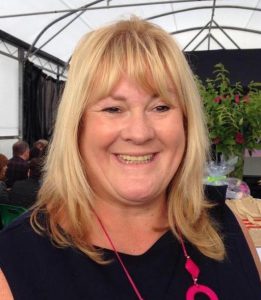 You might have come across the discussion in the media recently about people with additional educational needs or disabilities being “forgotten” during the pandemic. These are the very people and families who desperately need the structure, routine and – perhaps most importantly – feeling of belonging to a community where educational opportunities and meaningful things to do in the day are critical. The people that My Life was set up for in the first place.
You might have come across the discussion in the media recently about people with additional educational needs or disabilities being “forgotten” during the pandemic. These are the very people and families who desperately need the structure, routine and – perhaps most importantly – feeling of belonging to a community where educational opportunities and meaningful things to do in the day are critical. The people that My Life was set up for in the first place.
But many are at home. We see it ourselves; there’s one young man who would usually come to enjoy all the facilities and caring atmosphere at My Life in Standish, but, because he’s in the clinically vulnerable group, is isolating. However, we haven’t forgotten him. He is very much included. We are open – be that physically or virtually.
I’ve been really proud of our response to Covid within our My Life Learning and Day Opportunities settings. We’ve kept our doors and gates open to people who wanted to come; in fact the Education and Skills Funding Agency were pleasantly surprised by our approach. When the work with them was complete, we asked Public Health England to visit in case there was anything more we could do.
Why? Of course we all wanted to be safe, but we also knew how crucial it was for people and families to feel confident that they could return to a form of normality, a routine, an inclusive community.
It helped that we’re a unique establishment in Standish, where people spend 90 percent of their time outside. We had all the PPE, well ventilated spaces, one way systems. So it was wonderful to welcome 99% of our cohort back in September, and when the lockdowns were announced again in January, 50% are still coming to Standish and Leigh.
And let me reiterate, we haven’t forgotten the other 50%.
Making sure no-one misses out
I think if you’d asked us how we might make virtual education and day opportunities work for people who are practical, visual learners, there would have been an assumption it would have been really tough. But through a lot of hard work and determination that no-one will miss out, everyone will be included, we’ve integrated the live sessions with virtual sessions so that people can interact at home. They can cook together and we’ve produced learning kits which allow those at home to join in with the tools-based work. We’ve even managed to do some work in animal care – don’t worry, we aren’t sending sheep to homes across the North West!
Seriously though, ‘virtual My Life’ was hard for the people isolating at home to start with. They would see their friends at Standish and find it difficult to understand why they couldn’t be there too. But, going back to the young man I introduced you to at the start of this blog, that’s come full circle. He now feels that same sense of belonging, he feels included in the learning experience.
And, of course, the community experience too. We must ensure through this pandemic that everyone feels valued and a part of something. It’s the social interaction which is particularly critical for the people we welcome under the My Life umbrella. One mother told me that even though her daughter has extremely limited speech, it’s obvious she still feels involved and she’s still interacting online in her own way.
Crucially, it also gives her mother some respite, the ability to get on and do something else. It’s worked much better than we ever hoped. And as the vaccinations begin to roll out – most of our staff are vaccinated and by the time you read this hopefully our young man who is described by the state as ‘Clinically Vulnerable’ will be too – it feels like there is light at the end of the tunnel. Yes, it might be a while before we’re truly back to ‘normal’ as a society, but at least at My Life we are able to reassure people that there are familiar, safe places available that can help their vital routines get established again.
We really see how important that is: we have people in their 40s and 50s coming to Standish, whose parents are elderly and have struggled themselves during lockdown. We’ve been ringing, checking everything is ok for everybody in the family, and offering respite in the chalets – or full time and flexible provision at Standish if that can help them out of their situation.
We’re responding now and dealing with the paperwork later because, ultimately, we’re driven by the needs of the people we work with. In that sense My Life is more than simply providing a day opportunity or education, it’s making sure the person’s voice is critical in everything we do – and leads them to a more fulfilling role using their skills and gifts in the wider community.
Someone who epitomises this approach in a challenging time is Luke. He’s been coming to My Life since the very start; leaving a special school to come to us was his next step into the wider world. He did a few years in our further education programme, and throughout has been working towards his Duke Of Edinburgh Gold award, doing things that truly stretch him.
Last week, Luke finally got his Gold. A lovely story, and one that illustrates that it is possible to carry on and achieve despite all the personal (and global) challenges right now. You just have to do it in a different way. More than anything that really demonstrates what we’re doing on a much wider level with people in 2021. We’re not forgetting them; we’re helping them live their best lives.
Caroline Tomlinson, My Life Founder and Chief Executive Officer
Subscribe to My Life’s Blog
Like what you’ve read? Subscribe here and receive our blog direct to your inbox!
Tell us what you think
Please leave a comment below.
“What My Life Means to Me”: Samantha Moss-Gibbons, Animal Care Apprentice
Posted on Wednesday, February 10th, 2021
My Life is a community of diverse individuals all working together.
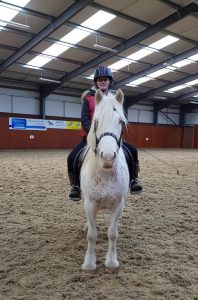 That’s what makes our charity what it is, so we thought it would be nice to find out a bit more about the people who are part of our community!
That’s what makes our charity what it is, so we thought it would be nice to find out a bit more about the people who are part of our community!
This week is National Apprenticeship Week, so who better to start with than Samantha Moss Gibbons, our Animal Care Apprentice?
How I got here
Samantha has always loved animals. Having worked at a local Equestrian Centre, she owns two horses, three dogs and after an unfortunate incident involving guinea pig gender identification, Samantha says “too many guinea pigs to count…”
After spending some time on a course at a local college, Samantha quickly realised that a more formal study environment wasn’t for her. Having heard that an Animal Care Apprenticeship was available at My Life, she leapt at the chance to learn in a more hands-on environment.
Where I am now
An Apprenticeship is a way to combine a paid, practical job with study and Samantha feels that this suits her. Five months into her role, Samantha is now really enjoying her learning, which she does alongside caring for My Life’s menagerie of pigs, goats, chickens and of course, horses.
And it’s not just about the work. As Samantha says: “I feel really comfortable here, because it’s such a lovely atmosphere. Everyone is really nice. Being here is building my confidence. I know a bit more about the world of work now and I’m less nervous about it.”
Where I could be in the future
Let’s face it, very few of us knew what we wanted to be when we were younger, but an Apprenticeship opens doors and gives the opportunity for new experiences.
“I’d thought about a career maybe as a dog groomer, but I didn’t know enough about it” says Samantha. “I spent a bit of time in My Life’s Doggy Day Care and now I’m thinking that this may be the way I want to go.”
So, in honour of National Apprenticeship Week, what advice would Samantha give to someone considering an Apprenticeship? “It’s simple. If I’d known how happy I would have been doing an Apprenticeship, I would have done it sooner!”
Find out more about opportunities at My Life, as a member of staff, fundraiser or volunteer, here.
Discover more about National Apprenticeship Week here.


